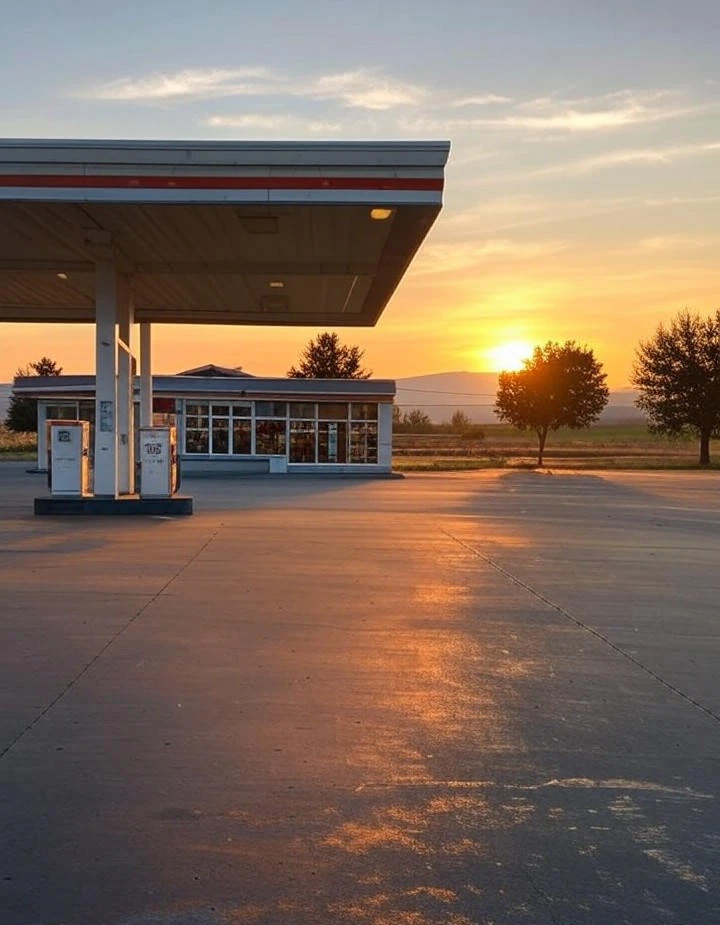
This website uses cookies
We use Cookies to ensure better performance, recognize your repeat visits and preferences, as well as to measure the effectiveness of campaigns and analyze traffic. For these reasons, we may share your site usage data with our analytics partners. Please, view our Cookie Policy to learn more about Cookies. By clicking «Allow all cookies», you consent to the use of ALL Cookies unless you disable them at any time.
Finding applications of blockchain in the oil and gas industry takes some searching. While a great many sectors have embraced distributed ledger technology, energy has been slower to adopt.
But that is getting ready to change. Energy’s reluctance toward DLT is rapidly dissolving.
A recent Deloitte survey revealed that 72% of oil and gas executives expect blockchain to interrupt the industry.
To be sure, exploring beneath the earth’s mantle for natural resources is a far leap from exploring how blockchain might benefit the energy sector. But as DLT cuts a disruptive path through automotive, finance, and healthcare, oil and gas companies have started to think blockchain technology might offer them something too.
Let’s see why, and then let’s take a look at 5 solutions blockchain offers this crucial sector. Finally, we will take a look at one case history that shows how DLT is already changing this venerable industry.
Oil and Gas Industry Challenges
The production, refinement, and delivery of fuel products is a highly complex business. The ease of refueling our vehicles is in stark contrast to the challenges involved in getting the fuel to the pump.
An ultra-short list of issues facing the oil and gas industry every day include the following:
Finding new ways to locate petroleum and gas deposits
Transporting volatile fuel components safely and efficiently
Managing complex supply chains
Securing trading and settlement of energy commodities
Securing and simplifying billing and payments
Maintaining arduous and ever-changing regulatory compliance
These issues, and the host of other problems facing fuel producers, transporters, and distributors, can be solved or greatly mitigated by blockchain technology.
Here are 5 benefits DLT offers the energy sector. The full list of advantages is much longer.
Blockchain Benefits for Oil and Gas
Upstream

The Exploration and Production (E&P) of petroleum and gas reserves is what’s known as the upstream segment of the industry. It’s the most complex, expensive, and dangerous part of the energy business. The upstream segment is a mammoth collection of government and private entities, further divided into hundreds of functions and expertise.
Safety, efficiency, and transparency are crucial to keeping the upstream segment from coming to a grinding halt. Unfortunately, legacy systems are no longer able to keep pace with the highly data-centric nature of upstream entities. Blockchain, on the other hand, is perfectly suited to these challenges.
Here are just a few ways blockchain can benefit oil and gas upstream providers:
Financial Reconciliation
Because of the complexities of upstream processes, several companies might work on the same project, often at the same time. Keeping records of who does what is more of a challenge than it out to be. Verification of labor hours, alone, is a time-consuming process, fraught with delays, disputes, and corrections.
Blockchain lends itself perfectly to billing reconciliation because data can be recorded and processed in real time. The immutable nature of DLT ledgers ensures that billing records cannot be forged, altered, or deleted.
Identity & Certification
Oil field operations often require that company and even worker certifications be validated. Certifications can come from a multitude of sources, with errors and delays being all too common.
By putting all certifications on an industry blockchain when they are issued, all permissioned stakeholders can access them as needed, without delay, and with an assurance that certs are current and legitimate.
Error Reduction
If the errors that occur in gas and oil production could be eliminated, you might not mind going to the pump. While no technology can compensate for all human error, blockchain can take error-prone processes out of human hands.
Field tickets, maintenance data, and production data are still heavily dependent on manual data entry. By automating data collection, energy blockchains can not only streamline data collection, but can significantly reduce errors, delays, and costs.
Improved Maintenance
If safety is goal number one for the fuel industry, maintenance is job number one. Without regular, effective maintenance, safety cannot be assured. And without data, maintenance cannot be performed effectively or verified.
DLT databases are ideally suited to automating many of the processes associated with maintenance operations.
In time, all oil field maintenance will be managed using mobile apps and cloud-based blockchain platforms. In fact, this nascent market represents one of the hottest opportunities for investment and innovation in the energy industry.
Land Rights Management
Oil companies can’t drill just anywhere they like—at least not without paying someone for the rights to do so. Identifying who owns land and mineral rights is necessary before exploration or drilling can be done. Till now, the processes of determining ownership has been a long and difficult process.
Until the government agencies that manage land and mineral ownership records adopt blockchain, rights management will remain a difficult process. However, as energy companies obtain the rights they need, those rights can be stored on blockchains, where they can be sold or traded as commodities.
Decades from now, when rights are eventually all stored in the cloud, fuel companies will be able to identify owners and purchase rights all in the same day.
Midstream
Midstream refers to the transportation of crude oil from oil rigs and oil fields to refineries. The processes involved in midstream can benefit from the efficiency offered by blockchain technology.
Supply Chain Management
The midstream segment of the energy industry requires a constant and abundant supply of materials, tools, equipment, and other supplies. Just as with any industry, managing these complex supply chains is a sub-industry unto itself.
Keeping supplies moving 24/7 is a data-intensive task. Most legacy oil and gas supply chain management systems are barely capable of keeping up. Blockchain excels at tracking products, supplies, fleets, and other resources.
As the energy IoT ecosystem matures, supply chain management will become not only easier, but automated. While we are a few technology generations away from hands-free management of energy supply chains, every day there are innovations moving us further in that direction.
Opportunities abound today for both investors and developers in this niche sector.
Pipeline Inspection
Pipeline inspection requires close coordination between regional companies who perform the work. In many instances, not only do companies have to provide inspection data, but certification data as well.
Distributed ledgers will soon be created for the sole purpose of managing pipeline inspections. Inspection data will be provided to the blockchain by inspection companies in real time. Company and worker certifications will also be stored there, for instant access by regulatory agencies and other stakeholders.
IoT Integration
IoT hasn’t taken off as some had hoped. Not because the technology isn’t workable — it is. Nor because it isn’t marketable — it is. The reason we haven’t gotten past your car talking to your coffee pot is mainly because there are too few developers to meet the need.
As both independent startups and mega corporations continue to make forays into the IoT marketplace, IoT will transform and disrupt all types of industries. Nowhere is the market potential greater than in energy.
And with IoT comes blockchain.
Blockchains will form the platforms by which IoT data is collected, stored, and shared within the energy sector. From fleet tracking to monitoring logistics, IoT and blockchain technologies will transform how data is managed in oil and gas exploration and production.
Downstream
Downstream refers to the refining and purifying of natural gas and crude oil, and to the delivery of the final product to fuel and gas distributors.
Refineries
Thousands of processes are required to refine every drop of crude oil into gasoline or diesel. Natural gas purification, the same. Ensuring that each of these processes takes place as required, and within specified parameters, is a job for blockchain.
You can look at a blockchain as blocks of data, each linked to the previous block of data and to the following one. As oil and gas are processed, test results and process verifications can easily be stored in a DLT ledger.
Processing such enormous amounts of data, and keeping it secure, is challenging for legacy database applications. Not only are conventional databases often inefficient, keeping them secure is another challenge.
Blockchains are inherently secure. The fundamental nature of the blockchain makes it one if the most secure database models ever devised.
Transportation
Gasoline and diesel move from refineries to wholesale and retail providers mainly via truck or train. Managing logistics is certainly within the capability of legacy systems. So why use blockchain?
While conventional software can handily manage small fleets, large fleets need a more robust platform. Vehicle tracking, vehicle maintenance, security of cargo, and vendor validation are all performed with greater efficiency using a DLT platform. Not only can DLT store the plethora of data generated daily, but that data can be shared in real time, analyzed using AI applications, and used to improve fleet efficiency and safety.
End Users
DLT offers a wealth of opportunities for consumer-facing products and services. Once fuel and gas have been made ready for sale, blockchains can manage point-of-sale systems, customer account data, and purchase reward programs.
Here, the benefits of DLTs extend to the consumer, by making fuel sales fast, safe, and convenient.
Smart Contracts
One of the most powerful features blockchain has to offer any industry is the smart contract. Smart contracts automate transactions between counterparties, without the need for an intermediary such as a bank or attorney.
Since the oil and gas industry involves millions of asset transfers daily, putting these transactions on the blockchain can improve efficiency, security, and transparency.
Depending on how the code is written, a smart contract can cause certain actions to be executed only when certain conditions have been met. For example, as a tanker is fueled, the value of fuel can be automatically charged to the supplier without human involvement.
The actual uses for self-executing contracts in the energy sector are limitless.
Commodity Trading
Trading platforms are already using blockchain technology to automate trades. Now, oil trading platforms are emerging that cater to the unique complexities of trading energy commodities.
Major oil companies are stepping up to support such platforms, and we are sure to see more come online in the coming months.
Blockchain oil and gas trading represents the future of investment for the energy sector.
A Case History

We have discussed a few of the benefits that blockchain offers the oil and gas industry.
All of them are achievable with current distributed ledger technology, but some will take a little time before they become commonplace.
But we do not have to wait to see the impact blockchain technology is already having on the industry.
Enverus represents a blockchain-powered platform that provides a wealth of resources for the oil and gas industry.
The SaaS platform is a prime example of what blockchain can do for companies in the energy sector.
Enverus has a full set of data analytics features that help industry stakeholders make better business decisions.
Optimized by the Technorely development team, the cutting-edge platform is relied upon by more than 2,500 companies around the world.
Many other blockchain oil and gas use cases are available, and more will materialize as industry adoption occurs — and it will.
Conclusion
The number of oil and gas companies using blockchain might not impress you yet. But don’t make the mistake of thinking adoption will not soon occur.
We have seen 5 examples of how blockchain will soon transform the energy industry, along with just one case study that proves it is already happening.
The need for blockchain applications in oil and gas will soon outpace solutions.
If meeting the needs of this emerging market is part of your business strategy, you need a technology partner to transform your ideas into marketable solutions. Why not contact us today for a cost-free consultation?






